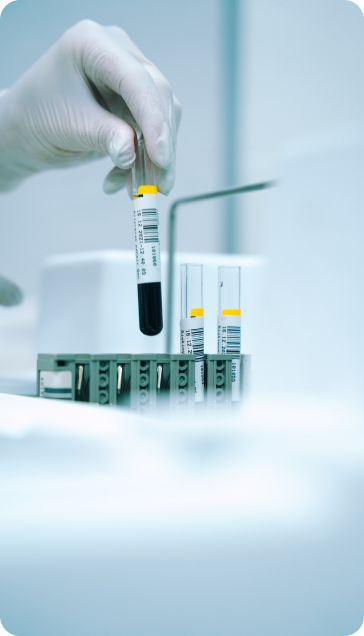Preparation
List of Included Tests - 30 Tests
This test measures the level of triiodothyronine (FT3) in your blood. FT3 is one of two major hormones made by your thyroid gland, the other hormone is called thyroxine (T4.) They both work together to regulate how your body uses energy. These hormones also play an important role in controlling your weight, body temperature, muscle strength, and nervous system.
A FT4 test measures the blood level of the hormone FT4, also known as thyroxine, which is produced by the thyroid gland and helps control metabolism and growth. The T4 test is performed as part of an evaluation of thyroid function.
A TSH test is a blood test that measures this hormone. The thyroid is a small, butterfly-shaped gland located near your throat. Your thyroid makes hormones that regulate the way your body uses energy. It also plays an important role in regulating your weight, body temperature, muscle strength, and even your mood.
Ferritin is a blood protein that contains iron. A ferritin test helps your doctor understand how much iron your body stores. Ferritin test reveals that your blood ferritin level is lower than normal, it indicates that your body iron stores are low and you have iron deficiency. As a result, you could be anemic.
This test is done to measure the amount of Aspartate Aminotransferase (AST) in blood serum. AST is an enzyme found in heart cells, kidney, muscles and liver, this test is preferred to be done on a regular basis to assure the liver in a healthy state
This test is done to measure the amount of Alanine Aminotransferase (ALT) in blood serum. ALT is an enzyme found mostly in the liver. This test is prefered to be done on a regular basis to assure liver is in a healthy state
Iron tests measure different substances in the blood to check iron levels in your body. Iron is
a mineral essential for making red blood cells. Red blood cells carry oxygen from your lungs to the rest of your body. Iron is also important for healthy muscles, bone marrow, and organ function. Iron levels that are too low or too high can cause serious health problems.
Vitamin B-12 plays an essential role in red blood cell formation, cell metabolism, nerve function and the production of DNA ( molecules inside cells that carry genetic information. Vitamin B-12 deficiency can lead to anemia, fatigue, muscle weakness, intestinal problems, nerve damage and mood disturbances.
Vitamin D is essential for several reasons, including maintaining healthy bones and teeth.It may also protect against a range of diseases and conditions, such as type 1 diabetes.
Zinc can be tested along with other trace elements (e.g iron, copper & selenium) to identify deficiencies where a person may benefit from supplementation. When a person displays clinical symptoms that may be associated with zinc deficiency, the measurement of zinc can determine if supplementation is required.
A complete blood count (CBC) is a blood test used to evaluate your overall health and detect a wide range of disorders, including anemia, infection, platelets disorders and leukemia.
- Fasting is not required




